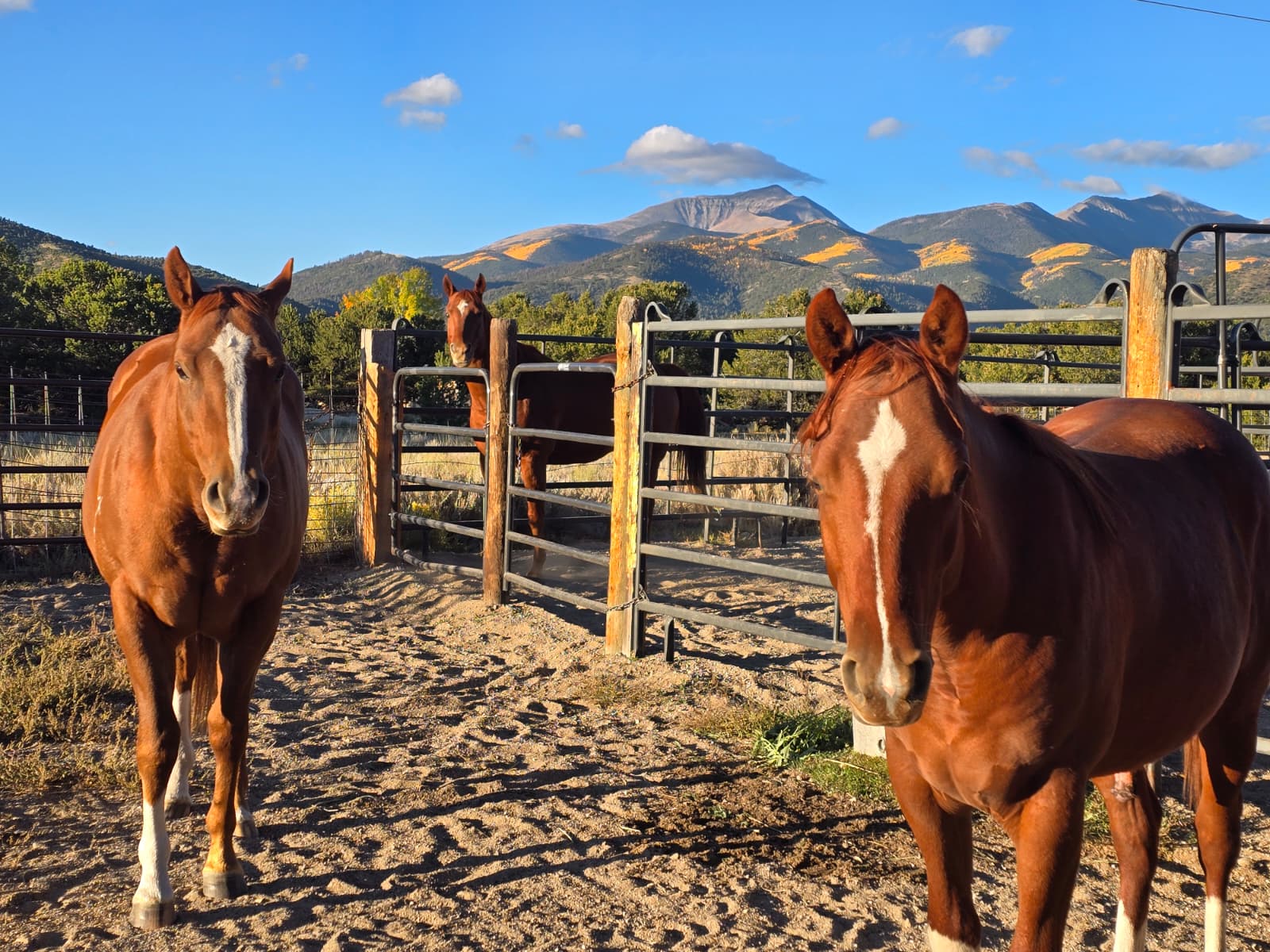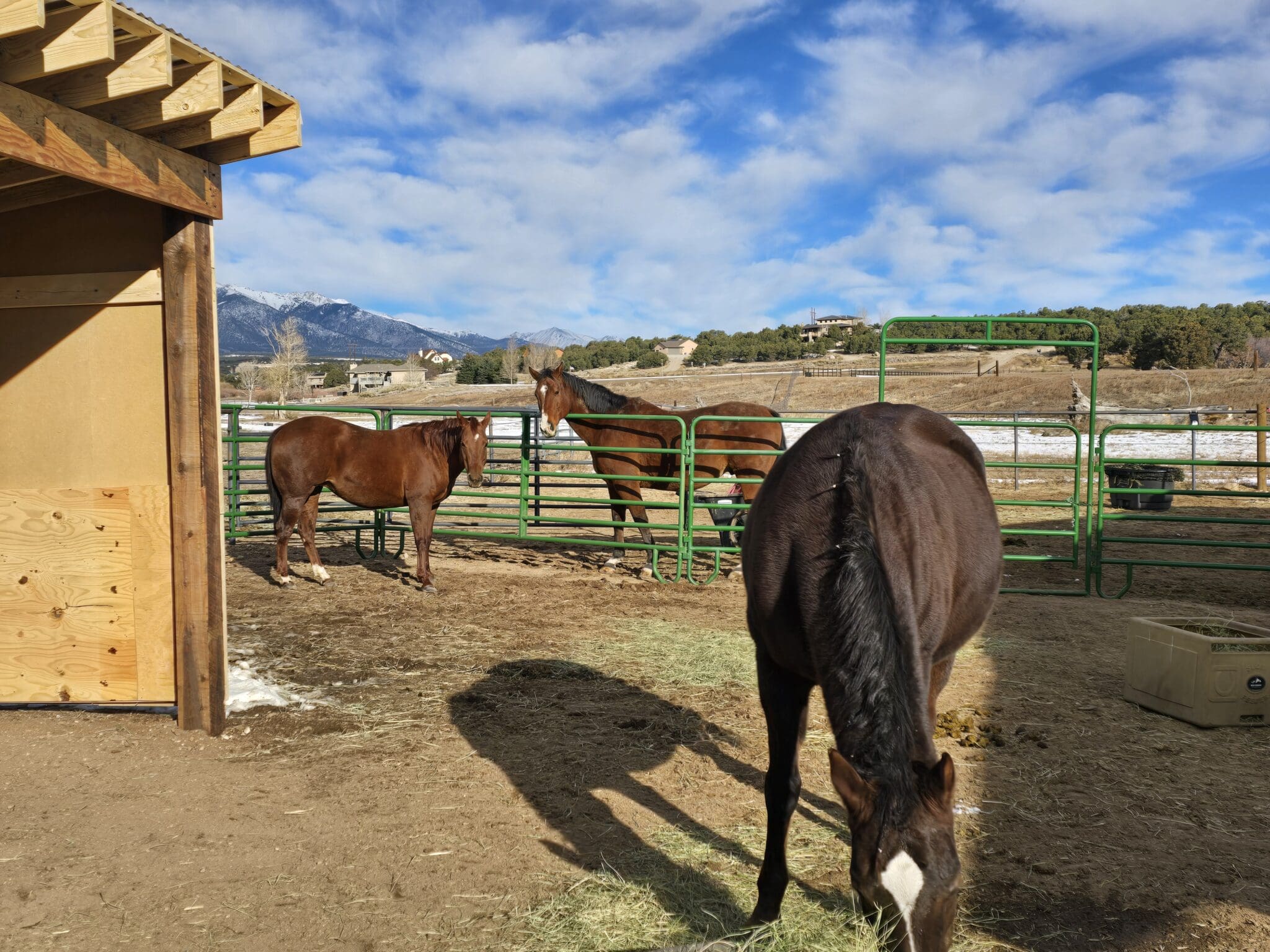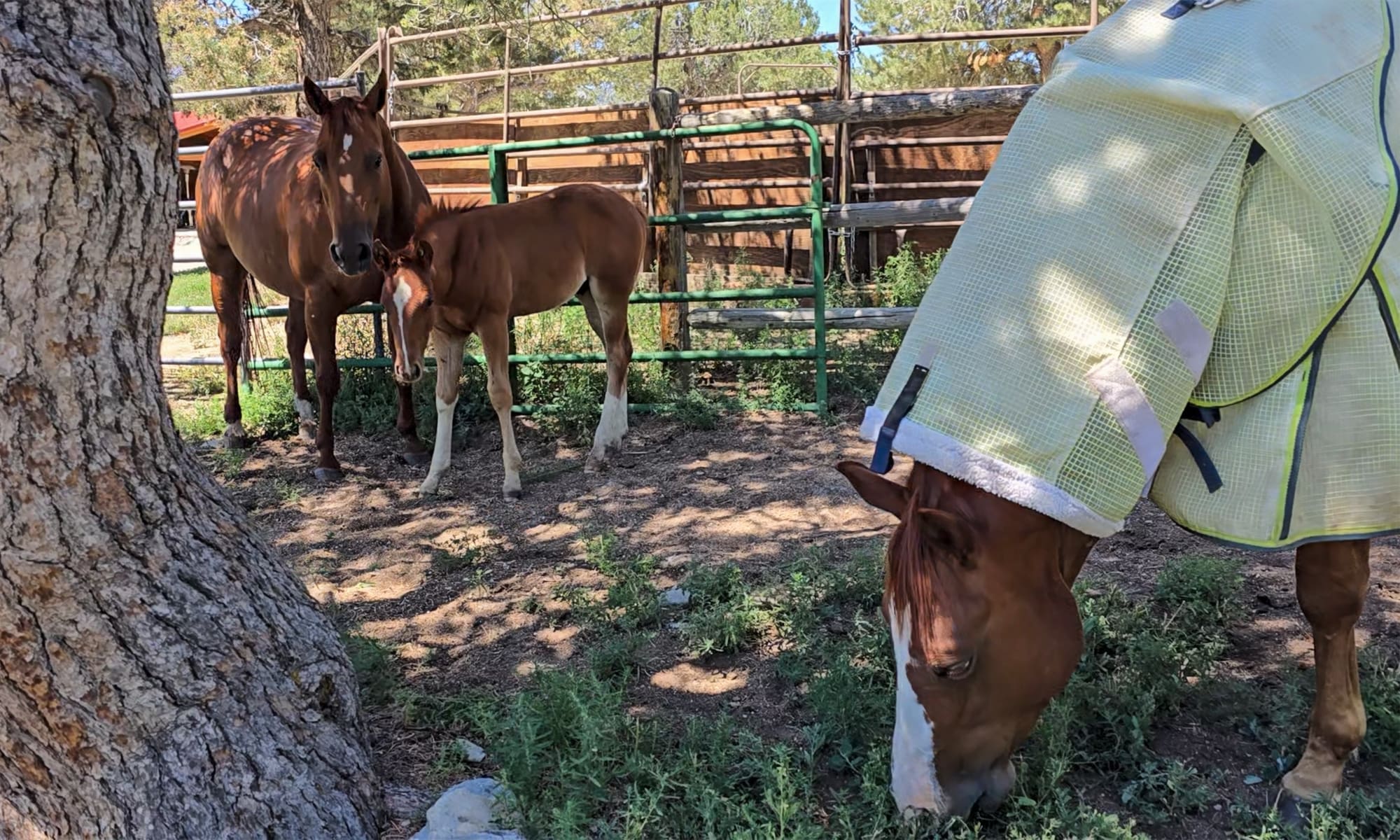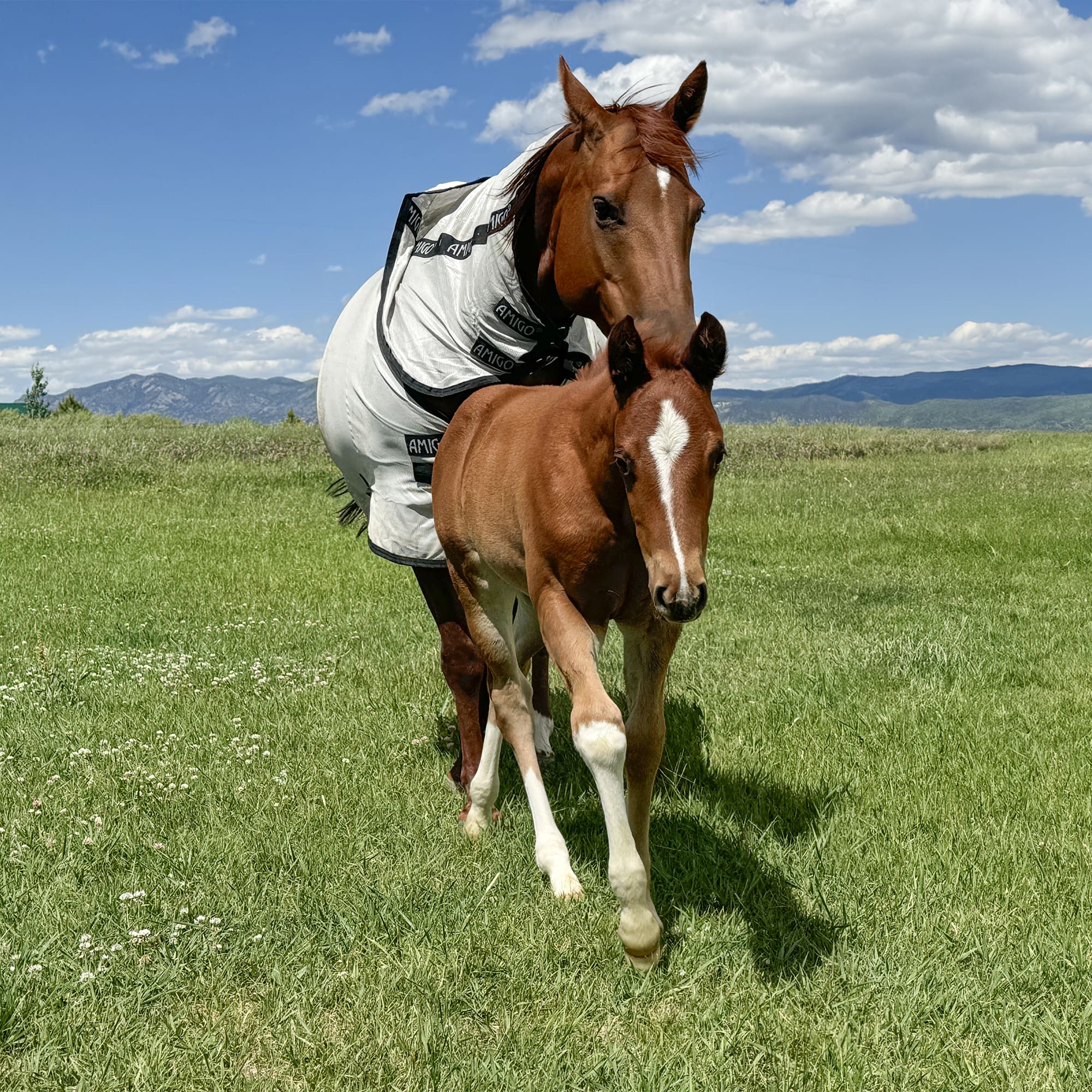
Here in the Colorado mountains, the lazy days of summer are an exquisite time of year. Warm sunny mornings, followed by afternoon thunderstorms that cool things off at night. The serene view of my beautiful mare and foal, grazing and frolicking in their lush green paddock and splashing in the pond, makes my heart swell.
“Rip,” as we are unofficially calling the colt, is cute as a button and growing like a weed. Like most parents, Annie, Rich and I think he is exceptionally beautiful, wickedly smart and amazingly athletic.
Annie has been a perfect mother, and for now, she is content to stay separated from the geldings. Annie and Rip are led up to their paddock each morning, and then back to their cozy stall and large outdoor run at night. Annie’s creature comforts are very important to her, so she does not like to stay out there all day. When it’s too hot and buggy, she adamantly summons us (her valet service) to be shuttled back to her cool and comfortable stall. (The valet staff is very accommodating, in spite of never getting a tip.)
Rip is easy to catch and halter, and leads to and from the turnout quite well by now, so I guess we can say that he’s halter-trained. Everyone who handles Rip is conscientious and consistent about not allowing him to put his chompers on them (which left unchecked quickly leads to biting). The mildest scolding has been effective in teaching Rip to keep his mouth to himself. That, and people not playing with his muzzle, snuggling with him, and other things that would encourage mouthiness. In this way, he learns important boundaries early in life that will keep his handlers safe for the long-haul.
Like colts are prone to do, when he feels playful, he’s starting to get a little frisky and a tad obnoxious. He wants to rear-up, paw, bite at her legs, and jump up on her back. Annie is getting better at reprimanding him, and hopefully she will be a little more assertive as he becomes more obnoxious.
The downside of keeping Annie and Rip separated from other horses is that he gets less socialization during this phase when he is getting ornery. An occasional scolding from a grumpy old gelding helps the colt learn some manners. But Rich and I agree with Annie on this one—we all worry that our geldings are a little too rowdy and jealous to be trusted with our precious little one.
In time, Rip will be big and strong enough to fend off a threat and keep himself out of trouble, and Annie will be less anxious about his safety. When the time comes we’ll bring one gelding into Annie and Rip’s paddock (rather than move them in with the geldings), and let them get acquainted slowly before introducing the other horses.
We think Rich’s older gelding, Casper, will be good for that. He was joined at the hip with Annie before she foaled, and was her protector. He seemed quite confused when she suddenly hated him with a vengeance immediately after she foaled. Annie’s gradually softening up to Casper again, but as I said, she still clearly prefers separation.
I’m thrilled to have this beautiful youngster on the ground, and I don’t know how it could be more perfect. It will be a couple of years before I will do much training with him, but I’m content to just watch him grow and guide his development in a positive direction. We’ll be careful not to over-handle him. Instead we’ll nurture him in a way that prevents him from developing bad habits or learning anything that might contradict his future training. In those two ways, many foals are inadvertently spoiled as youngsters.
Rip’s story is just beginning! Along the way, I’ll share my management and training techniques for young horses with you in my podcast, blog and socials.
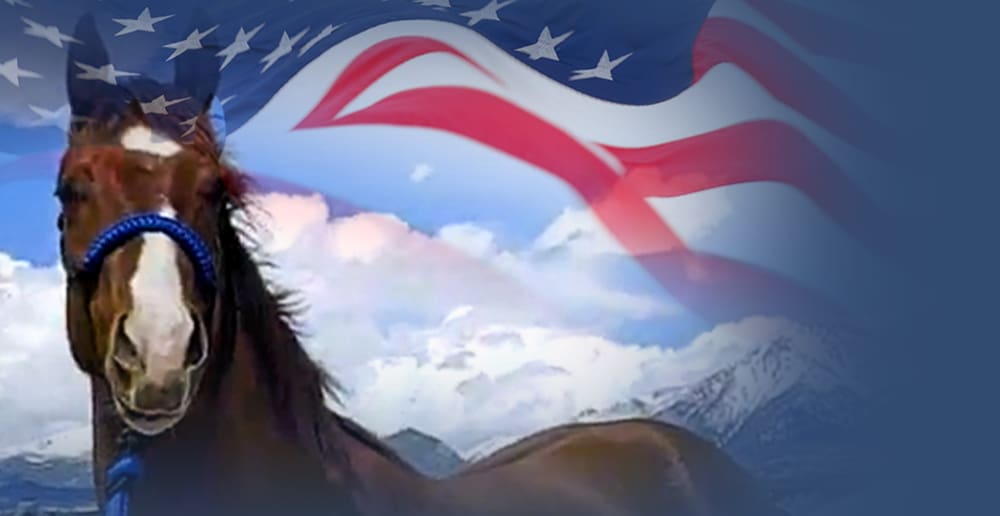
FREE SHIPPING Over $50 | This Month Only!
*Free shipping to U.S. addresses only, shipping will be adjusted on international orders.
